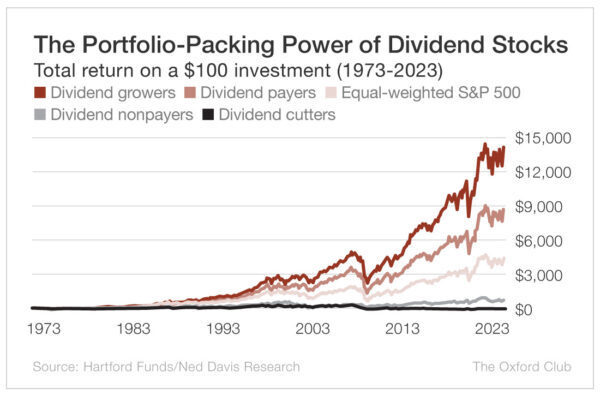SOUN Stock: Should You Follow NVDA’s Investment?
By this point, the potential of generative artificial intelligence has led to a dramatic price increase for many AI stocks. One of those stocks, SoundHound AI (Nasdaq: SOUN), has seen its stock run almost 400% YTD. This happened after Nvidia (Nasdaq: NVDA) disclosed that it owned shares in SoundHound. Many investors might be tempted to buy SOUN stock just because Nvidia did. But, you shouldn’t let yourself fall into this trap.
In this article, I’ll break down why you should stay away from SOUN stock for the time being.
What is SoundHound AI?
SoundHound AI is a leader in voice AI conversational technologies. It offers complete solutions and individual components that help companies create unique voice assistants. It’s voice assistants are mainly used by automotive and fast food companies. SoundHound went public in 2022 during the peak of the SPAC-craze. Since then, SOUN stock is down a total of 41%.
SoundHound’s Last 3 Quarters
The first thing I always do when analyzing a stock is glance at its financial statements. This immediately tells you if the company is profitable or not. Here are SoundHound’s last 3 quarters:
- December 2023
- Revenue: $17.15 million (+80% annually)
- Net Income: $-18 million (+40% annually)
- September 2023
- Revenue: $13.27 million (+18% annually)
- Net Income: $-20.20 million (+33% annually)
- June 2023
- Revenue: $8.75 million (+42% annually)
- Net Income: $-24.37 million (+20 annually)
SOUN stock might look rosy if you look at just the percentage increases in revenue. This snapshot makes it seem like SoundHound’s revenue is growing handsomely each quarter. But, revenue growth doesn’t matter as much when the company is consistently posting hefty losses.
SoundHound has never come close to turning a profit (at least not anytime recently). When you look at the last few years, the outlook only gets worse. Over the past 5 years, SoundHound has routinely lost more than twice as much money as it makes.
These losses might be OK if SoundHound was in “startup mode.” In other words, investing all money back into the company and growing quickly. But, SoundHound was founded in 2005. So, it should be well out of startup mode by now.
As if these losses weren’t bad enough, Capybara Research recently published a scathing short report on SoundHound AI.
A Scathing Short Report by Capybara Research
This report is part of the reason why SOUN stock has lost 50% off its all-time high. I read the full report (which was quite long as they had a lot of negative things to say) and pulled out some of the highlights:
- Manipulating financial statements: Capybara alleges that SoundHound manipulates its financial statements to appear more profitable than they are. For example, the company has been known to pull forward revenue for products that they haven’t even started working on yet. They’ve also treated one-time cancellation fees (paid by clients) as “product revenue” to help improve their margins.
- Losing major clients: In 2022, SoundHound was very boastful of its top clients in its 10k filing. But, in 2023, SoundHound didn’t mention any clients by name. This implies that the company probably lost its top clients. Not a good sign.
- Massively unprofitable: SoundHound was founded 19 years ago and has accumulated losses of $592 million – including losing $91 million in 2023. The company has no clear path to building a sustainable business or earning a profit
- Issues filing consistent updates: SoundHound has often filed its accounting documents late and frequently revises them after the fact. In 2023, it also used the auditor Armanino LLP to edit its books. This is the same auditor that FTX used. Not good company to keep.
- Insider control: SoundHound is controlled by insiders who have super-voting shares granting them 10 votes per share and 63% of the voting power. This implies that just a few people control the company and they might not act in the interest of other investors.
- Overly optimistic projections: The company has a history of over-promising and under-delivering on its promises to investors. There’s a thin line between “over-promising” and committing fraud.
Capybara’s report offered quite a lot to take in. But, this is also just the analysis of just one short seller. Short sellers are wrong all the time. So, we also have to consider that Nvidia, one of the world’s leading AI companies, also invested in SoundHound.
But What About Nvidia?
I wasn’t able to dig up a whole lot of extra information on Nvidia’s investment. All I could find was that Nvidia’s 13F statement (released on Feb. 14) disclosed a stake of 1.73 million shares.
But, I’d like to point out that Nvidia is worth over $2 trillion and earned revenue of $61 billion in 2024. So, for a company of Nvidia’s size, a small stake in SoundHound is almost a rounding error. You’d also be surprised by the lack of due diligence that often goes into deals like this. For example, just look at the startup, Theranos.
Theranos was a biotech startup company founded by Elizabeth Holmes. It grew to a valuation of 9 billion before investors realized that the company’s product (a home blood testing kit) didn’t work. Elizabeth was able to raise money early on by tricking early investors after faking a product demo. Then, she was able to raise additional funds because later investors just assumed that someone else had done the due diligence. It’s a fascinating story and there’s a great documentary of it on Hulu, called The Dropout.
Now, I’m not saying that Nvidia did no due diligence on SoundHound. But, there’s a chance that they just placed a handful of bets on companies working in the AI space, without doing much due diligence. After all, if the investment doesn’t work out then it won’t hurt Nvidia at all. Nvidia might’ve also had a strategic reason to invest in SoundHound, like getting access to its tech.
Either way, the bottom line is that you shouldn’t buy SoundHound just because Nvidia did.
SoundHound’s Broken BusinessModel
Even if we put the accounting sketchiness to the side, there’s one more glaring issue with SoundHound: it has a broken business model.
SoundHound makes most of its money (which isn’t much) from voice assistants. So, first off, it already has to compete with Google Voice (Nasdaq: GOOGL) and Amazon Alexa (Nasdaq: AMZN). Tough competition. But, even if we assume that SoundHound has a superior product, the voice assistant space is notoriously unprofitable.
Although the tech works amazingly, Amazon has described its Alexa product as a “colossal failure.” Amazon reported that Alexa lost up to $10 billion in some years. In fact, the Everything Store recently announced massive layoffs in its Alexa division. So, if Amazon isn’t making any money in voice assistants then I can’t imagine that SoundHound is.
Should You Buy SOUN Stock?
I wouldn’t. Even if Capybara’s short report is wrong in some areas, it’s a simple fact that SoundHound has been losing money for over a decade. Plus, there’s the fact that voice assistants are widely unprofitable. When you consider that SoundHound also likely uses sketchy accounting practices, SOUN stock just isn’t worth the risk.
Fortunately, there are lots of other AI companies out there that are much more exciting.
Disclaimer: This article is for general informational and educational purposes only. It should not be construed as financial advice as the author, Ted Stavetski, is not a financial advisor.
About Teddy Stavetski
Ted Stavetski is the owner of Do Not Save Money, a financial blog that encourages readers to invest money instead of saving it. He has five years of experience as a business writer and has written for companies like SoFi, StockGPT, Benzinga, and more.





